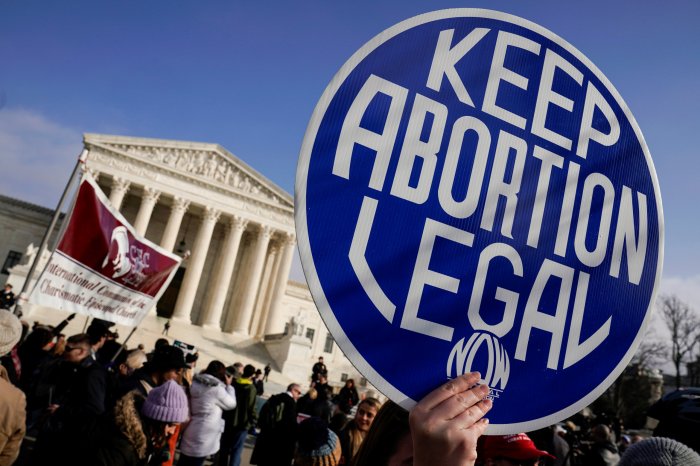(Reuters) – President Donald Trump vowed on Wednesday to fight all the way to the Supreme Court against any effort by congressional Democrats to impeach him, even though the U.S. Constitution gives Congress complete authority over the impeachment process.
Trump‘s threat, made in a morning tweet, came as the White House launched a fierce legal battle to fight subpoenas from Democrats in the House of Representatives for documents and testimony from his administration.
Democrats remain divided on whether to proceed with Trump‘s impeachment after Special Counsel Robert Mueller’s Russia inquiry. Trump defiantly proclaimed on Twitter that the investigation “didn’t lay a glove on me.”
“If the partisan Dems ever tried to Impeach, I would first head to the U.S. Supreme Court,” the Republican president, who is seeking re-election next year, said without offering details about what legal action he envisioned.
The Constitution gives the sole power of impeachment and removing a president from office to the House and the Senate, not the judiciary, as part of the founding document’s separation of powers among the three branches of the federal government.
House Speaker Nancy Pelosi and other Democratic leaders have remained cautious over launching impeachment proceedings against Trump ahead of the 2020 election, although they have left the door open to such action. Others in the party’s more liberal wing have demanded impeachment proceedings.
Mueller’s findings, released in a redacted report last week, detailed about a dozen episodes of potential obstruction of justice by Trump in trying to impede the inquiry but stopped short of concluding he had committed a crime. The report said Congress could address whether the president violated the law.
House Democrats have stepped up their oversight of the Trump administration since taking control of the chamber in January, from Trump‘s tax returns and White House security clearances to the investigation into Russian interference in U.S. politics.
Trump has ordered officials not to comply with subpoenas, and has filed a lawsuit to prevent material from being turned over to lawmakers.
“We’re fighting all the subpoenas,” Trump told reporters at the White House on Wednesday.
The Justice Department on Wednesday rebuffed the House Oversight and Reform Committee, which had sought to interview an official involved in the Trump administration’s decision to put a citizenship question on the 2020 census.
The department said John Gore, a deputy assistant attorney general in the Civil Rights Division, would not participate in a deposition scheduled for Thursday if he could not have a Justice Department lawyer at his side. The committee had offered to allow a lawyer to sit in a different room.
CONSTITUTION
Under the Constitution, Congress is a co-equal branch of government alongside the executive branch and the judiciary.
The Constitution empowers Congress to remove a president from office for “treason, bribery or other high crimes and misdemeanors.” The House is given the power to impeach a president – bring formal charges – and the Senate then convenes a trial, with the senators as jurors, with a two-thirds vote needed to convict a president and remove him from office.
The Constitution gives no role to the Supreme Court in impeachment, though it does assign the chief justice the task of presiding over the Senate trial. Conservative John Roberts currently serves as chief justice.
That would not preclude Trump from proceeding with litigation to tie up the issue in the courts, despite Supreme Court precedent upholding congressional impeachment power. In 1993, the nation’s top court ruled 9-0 in a case involving an impeached U.S. judge that the judiciary has no role in the impeachment process.
Laurence Tribe, a constitutional law professor at Harvard who has been critical of Trump, said the U.S. founding fathers had considered but ultimately scrapped the idea of allowing the Supreme Court to have any role in the impeachment process.
“Not even a SCOTUS filled with Trump appointees would get in the way of the House or Senate,” Tribe said in a series of tweets on Wednesday.
Some congressional Republicans have urged the country to move forward after the Mueller report, while a few, including Senator Mitt Romney, have condemned Trump‘s actions. Some conservatives outside of Congress have urged congressional action in the wake of Mueller’s report.
(Reporting by Susan Heavey, Steve Holland, Roberta Rampton and Makini Brice, Writing by John Whitesides, Editing by Andrea Ricci and Alistair Bell)
























